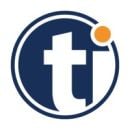While humans remain a big part of the equation, artificial intelligence has taken on an increasingly significant role in trading. The global AI trading market was valued at $11.2 billion in 2024, and it could reach 33.45 billion by 2030.
AI Stock Trading
AI stock trading uses machine learning, sentiment analysis and complex algorithmic predictions to analyze millions of data points and execute trades at the optimal price. AI traders also analyze forecast markets with accuracy and efficiency to mitigate risks and provide higher returns.
With AI becoming a constant presence in financial trading, we’re taking a closer look at how AI is reshaping the trading landscape, the consequences of this development and the biggest players driving this change.
What Is AI Trading?
AI trading refers broadly to the use of artificial intelligence, predictive analytics and machine learning to analyze historical market and stock data, get investment ideas, build portfolios and automatically buy and sell stocks.
How AI Stock Trading Works
Trading companies use various AI tools to interpret the financial market, use data to calculate price changes, identify reasons behind price fluctuations, carry out sales and trades, and monitor the ever-changing market.
How Machine Learning Drives AI Trading
Machine learning is at the core of the modern AI trading system. Unlike traditional trading strategies that rely on fixed rules, machine learning models adapt and improve as they process more market data. These models analyze patterns in historical pricements, trading columns, financial reports and even news sentiment to predict market behavior.
By processing enormous amounts of real-time and historical data, machine learning reduces human bias and speeds up decision making. This enabled AI trading systems to execute trades with greater precision, continuously refine strategies and respond quickly to change market conditions.
Types of Machine Learning Trading Systems
- Adaptive Trading uses reinforcement learning to analyze ongoing market data and continuously adjust trading based on market conditions. This is often achieved through AI agents that act as algorithmic traders or portfolio managers and make buying, selling and holding decisions.
- Algorithmic trading (algo-trading) is when stock investors use algorithms that make decisions based on historical data to execute trading decisions. These algorithms apply machine learning and deep learning to analyze market trends and financial news before making trades in small portions.
The Role of Generative AI
While traditional machine learning models focus on analyzing patterns and predicting outcomes, generative AI takes AI trading a step further by creating new insights and scenarios. Systems like large language models (LLMs) can simulate market conditions, for example, and generate synthetic data for backtesting.
By expanding the range of data inputs and creating realistic test environments, generative AI complements machine learning stems, helping investors build more innovative trading approaches.
Other Types of AI Trading
- Quantitative trading (quant trading) uses quantitative modeling to analyze the price and volume of stocks and trades, identifying the best investment opportunities. Because of its advanced capabilities, investors often use quantitative trading to complete major transactions involving up to hundreds of thousands of shares.
- High-frequency trading is when large quantities of stocks and shares are bought and sold rapidly. This type of trading depends on high-powered computers that can simultaneously analyze multiple markets and complete millions of trades in a few seconds, giving investors a competitive advantage.
- Automated trading (or AI trading) is a way of executing trades using pre-programmed trading instructions. It is similar to algorithmic trading, but operates on more basic trading strategies
- Arbitrage trading exploits market differences by buying an asset in one market and selling it for a higher price in a different market. Because AI trading tools can monitor multiple markets at the same time, they can quickly spot varying values across markets and allow investors to capitalize on these inefficiencies and generate small profits.
AI Trading Tools
When it comes to AI trading, investors have many tools at their disposal.
Portfolio Managers
These AI tools autonomously select assets to create a portfolio and then monitor it, adding and removing assets as needed. Investors can seek financial advice from AI managers as well, submitting information on their financial goals and risk tolerance to inform an algorithm’s financial decisions and advice moving forward.
Trading Robots
AI-powered trading robots refers to software that makes decisions based on predetermined rules it’s programmed to follow. These rules often consist of ‘if/then’ statements, enabling algorithms to complete trades only under certain conditions. Once an investor installs this software onto a platform, they can let it run on its own.
Signals
AI signals are pre-programmed to send automatic alerts when they discover stocks that meet specific requirements. Similar to trading robots, signals analyze stocks and act based on preset rules. Unlike trading robots, signals provide alerts without executing trades. Once an investor receives an alert via email, text or mobile app, they can decide whether to act.
Strategy Builders
Strategy builders are AI tools that investors can train to follow their own rules. Investors can backtest how their AI strategy builders could perform by having them operate within historical market conditions and simulate their strategies in action by having strategy builders work with virtual capital. This way, investors can fine-tune their strategies before letting strategy builders handle real-world trades.
AI Trading Use Cases
Although AI can initiate and complete trades on its own, it also contributes to other parts of the investing process.
Data Mining
Data mining is the practice of compiling and analyzing massive volumes of data to identify trends and patterns. Within the context of stock trading, AI can gather historical data and extract insights on past stock market behavior. Investors can then use these insights to make smarter trading decisions.
Sentiment Analysis
Sentiment analysis goes beyond stock market happenings and analyzes all online financial-related activity, including discussions on social media, news platforms, community forums and other online spaces. This provides another avenue for investors to gauge market behavior and make educated trading decisions.
Real-Time Analysis
Real-time analysis is when algorithms analyze data as soon as it is produced to determine market patterns and trends. AI trading tools have the capacity to analyze large amounts of data in real time and generate actionable insights. Investors can then use these instant analyses to execute faster trades and gain an advantage.
Predictive Modeling
Predictive modeling is the method of collecting past data to anticipate future trends. In stock trading, AI algorithms can process millions of transactions and analyze this historical data to predict stock market behavior based on previous scenarios. Investors can leverage this knowledge to plan accordingly while taking market volatility into account.
Risk Modeling
In addition to predictive models, investors can use AI technologies to produce risk models. These types of models weigh the possibilities of different events based on historical data and analysis. Investors can survey these scenarios to gauge how risky an investment is. They can also assess their current portfolio and adjust if they’re susceptible to common investment pitfalls.
Stress Testing
Stress testing involves testing an investment strategy on historical data or through a simulation to see how it holds up under various circumstances. Investors can then detect flaws in their strategies and determine steps to strengthen their financial standing. As a result, investors can take a more proactive approach to risk management.
Backtesting
Backtesting is the method of testing an investment strategy using historical data before allowing an AI tool to use this strategy to conduct real-world trades. This means having an AI tool apply an investment strategy to virtual capital and assessing the results. Investors can then tweak their strategies as needed before giving AI tools access to actual assets.
Benchmarking
Benchmarking is the practice of evaluating an investment strategy by comparing it to a stock market benchmark or index. AI tools can help compare investment strategies to those of other investors or benchmarks in a specific sector or industry. Investors can then contextualize their financial standing and decide whether they need to improve their strategy.
Benefits of AI Trading
AI trading can cut research time and improve accuracy, predict patterns and lower overhead costs.
Reducing Research Time and Improving Accuracy
AI trading automates research and data-driven decision-making, which allows investors to spend less time researching and more time overseeing actual trades and advising their clients. One survey found that traders who used algorithmic trading increased productivity by 10 percent.
And because AI trading uses historical financial data to inform decisions, there is less risk for human error and more room for accuracy.
Predicting Patterns
Using sentiment analysis, which is the process of gathering text and linguistics and using natural language processing to identify patterns within subjective material, an AI trading system can gather information from news outlets and social media to determine market swings and shed light on potential investor behavior.
Stronger Risk Management
AI tools can automate the process of collecting data and building predictive models based on historical data. Investors can then compile insights to weigh the likelihood of various outcomes, assess their current investment strategies and make changes as needed. For investors who rely on automated investing, AI tools can avoid making emotional decisions and maintain more logical and consistent trading.
Lowering Costs
Traditional investment firms might have hundreds of brokers, analysts and advisors working under them, but AI trading technology can replicate some of the repetitive tasks people have to do. There may be costs to implement and maintain AI, but over time firms and investors can spend less money on overhead expenses. Plus, AI algorithms can work continuously and monitor the stock market.
Risks of AI Trading
While many investors have enjoyed the upsides of AI trading, there are some downsides to be aware of before applying AI trading tools.
Less Transparency
AI trading technologies can handle thousands and sometimes millions of complex calculations in a matter of seconds. It’s impossible for humans to comprehend this task and understand how AI makes trading decisions. This raises questions about the ethics of using this technology and whether AI tools can be regulated in the stock market.
Too Reliant on Historical Data
While using historical data to anticipate future stock market behavior has proven to be an accurate method, it isn’t foolproof. Stock markets can be volatile, and unprecedented events like climate-driven migration and geopolitical conflicts could place new stress on markets. If investors don’t consider this volatility, they could rely too much on historical data when it doesn’t capture the full picture.
Larger-Scale Errors
As investors and institutions strive to become faster traders than their competitors, there are more opportunities for software errors to occur. A line of inaccurate code can spell massive trouble for a firm when that error is multiplied on the scale of hundreds of thousands of trades happening in a split second. If investors plan to automate more of their investment process, they need to ensure their software is bug-free.
Cybersecurity Concerns
AI trading tools can become targets of cyberattacks, and data breaches can lead to concerns around data privacy and financial health. Malicious actors may even take control of AI algorithms to destabilize financial markets and cause widespread confusion. Companies and individual investors would do well to take proper security precautions before embracing AI trading technology.
AI Stock Trading Companies
Location: New York, New York
AlphaSense helps investors research the market fast with its easily searchable platform. The company collects written content and data from sources like Goldman Sachs, J.P. Morgan and Morgan Stanley and makes it easy to sift through with its search function. AlphaSense uses AI trading technology like natural language processing and machine learning to comb through thousands of documents, market reports and press releases.
Location: Stamford, Connecticut
Composed of experienced traders, analysts and engineers, Imperative Execution builds efficient financial exchanges with the help of its product IntelligentCross, which uses AI to analyze stock prices and ensure price stability after trades are complete. The platform works with a variety of brokers and receives over 280 million orders from investors per day, according to its website.
Location: Miami, Florida
Sentora uses AI trading and deep learning to power its price predictions and quantitative trading for a variety of crypto markets. IntoTheBlock’s models are trained on spot, blockchain and derivatives datasets, which allow users to access historical data to better inform their trade decisions. The platform also compiles market sentiment on crypto assets so investors can get a pulse on even the most in-flux parts of the market.
Location: Seattle, Washington
Kavout’s “K Score” is a product of its intelligence platform that processes massive diverse sets of data and runs a variety of predictive models to come up with stock-ranking ratings. With the help of AI, the company recommends daily top stocks using pattern recognition technology and a price forecasting engine. Its model portfolios are enhanced by AI algorithms.
Location: San Francisco, California
Numerai uses machine learning to predict stock market trends and manage a new kind of hedge fund. The firm is a unique player in the market, as it uses encrypted data sets to crowdsource stock market models predicted by AI. The models are sourced from anonymous data scientists who are awarded Numerai’s cryptocurrency, NMR, for providing better models.
Location: Encinitas, California
Trade Ideas AI-powered self-learning, robo-trading platform “Holly” subjects dozens of investment algorithms to more than a million different trading scenarios to increase the alpha probability in future sessions. Each night the AI assistant platform will select the strategies with the highest statistical chance to deliver profitable trades for the upcoming trading day. On average, Holly enters between five and 25 trades per day based on various strategies.
Location: Miami, Florida
QuantConnect’s platform uses an AI-driven algorithmic trading engine, which analyzes market data and applies machine learning techniques to optimize investing strategies and perform backtests. It can also surface patterns across equities, options, futures, forex and crypto, allowing individuals to distribute their strategies across others assets through a dedicated marketplace.
Location: Fully Remote
Composer uses AI to power a no-code investing platform, which enables investors to build automated trading strategies without having to write code. It also uses AI to backtest strategies against historical data to optimize portfolio allocation and rebalance in real time. Composer is one of the few AI trading tools accessible to everyday investors.
Location: New York City
Magnifi uses conversational AI to power a financial copilot, which interprets user goals, analyzes global markets and recommends investment strategies tailored to an individual’s risk and diversification needs. Magnifi is available through a mobile app that also integrates with various brokerage accounts to monitor portfolios.
Location: Reno, Nevada
Tickeron is a trading platform that uses deep learning to analyze thousands of stocks, ETFs, forex pairs and cryptocurrencies in real time. It can forecast price movements and generate trade ideas by using predictive modeling. And through its agent features, it can also automate the buying and selling of assets.
Frequently Asked Questions
Is it legal for AI to trade stocks?
Using AI to trade stocks is legal. However, financial institutions must remain compliant with any regulations when relying on AI-based trading, and individuals may want to keep in mind the potential risks of AI trading tools.
Can AI be used to predict stocks?
AI trading technologies are capable of making highly accurate predictions within the stock market. Still, individuals who use AI trading tools may want to avoid becoming too dependent on the historical data algorithms used to predict stock prices.












